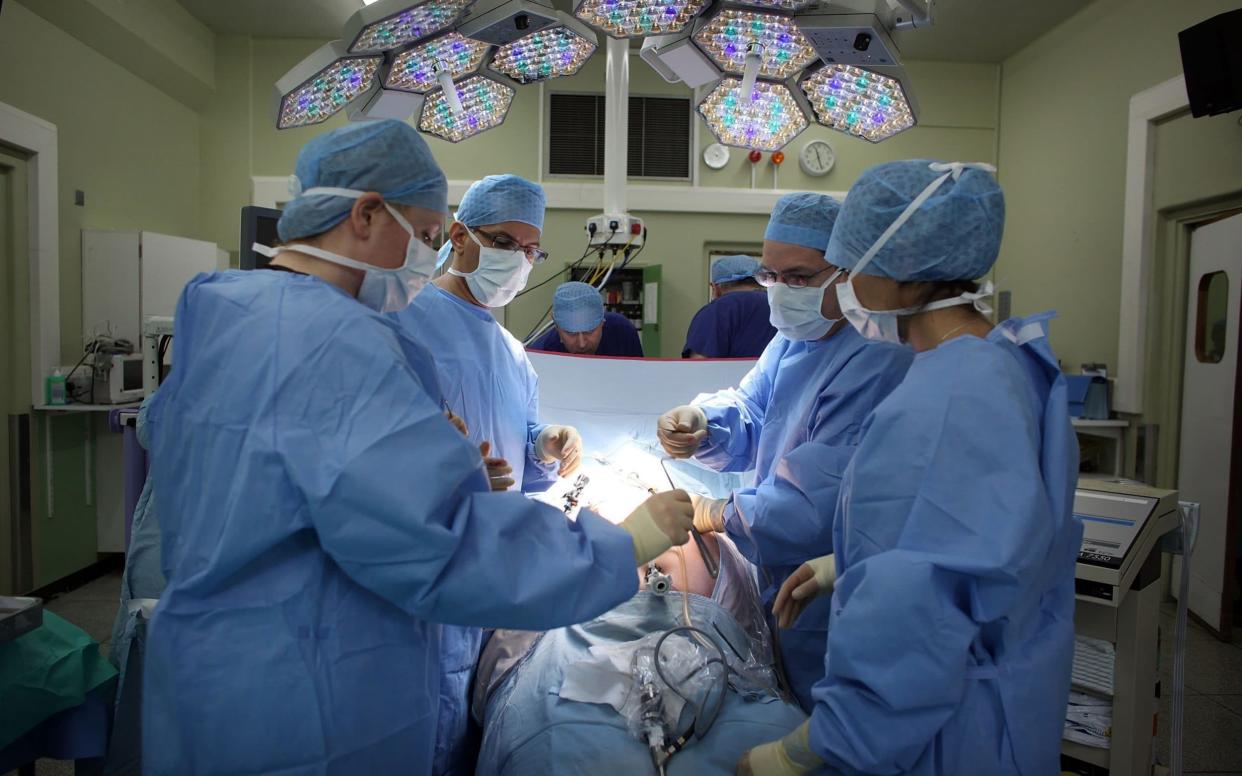Hundreds of pancreatic cancer patients denied life-saving surgery because of delays

Hundreds of pancreatic cancer patients are dying needlessly because of treatment delays after diagnosis, a major report has warned.
More than 800 pancreatic cancer patients diagnosed at stage one or two do not receive life saving surgery, even though it raises the chances of their survival ten fold.
Without surgery just 2.3 per cent of people survive for five years or longer, but that rises to 22.3 per cent for those who have their tumour removed.
A new report by Pancreatic Cancer UK warns that patients often have to wait months for tests to determine whether they are eligible for surgery by which point it is often too late. Two thirds of patients who could be treated with surgery do not recieved an operation.
Pancreatic cancer is one the most deadliest type of cancer and just one per cent of the 9,800 people diganosed each year will still be alive in 10 years and 93 per cent will die within five years. More than one quarter will die within a month of diagnosis.
Diana Jupp, Chief Executive of Pancreatic Cancer UK, said: “The awful truth behind this report is that too many pancreatic cancer patients are being denied their only chance of survival because they are simply not being treated fast enough.
“One in four people diagnosed with this devastating disease die within a month, making it the quickest killing cancer. It’s so ferocious that patients cannot afford to wait.”
The report coincides with the launch of Pancreatic Cancer UK’s Demand Faster Treatment campaign, which calls for surgery within 20 days of diagnosis by 2024.
The charity is calling for the introduction of one-stop clinic where patients can quickly have all the tests they need so operations can take place as soon as possible.
A recent pilot of fast-track surgery at University Hospitals Birmingham NHS Foundation Trust showed it was possible to reduce the time to operation from two months to just over two weeks.
“Our new analysis clearly shows that fast-tracking patients to surgery could, at least, give them at least more precious time with their loved ones and potentially save lives,” added Mrs Jupp.
“The team at Birmingham have proven that this is possible. Rolling-out their innovative approach to surgery across the UK can be cost-saving for the NHS and, most importantly, will significantly improve survival for the deadliest common cancer.”
The Birmingham study also found that the longer people waited for surgery to remove their tumour, the less likely they were able to have the operation, massively reducing their life-chances.
Of patients who waited 21 to 40 days for surgery, 15 per cent were then unable to have surgery; of patients who waited between 40 and 60 days, 24 per cent were then unable to have surgery.
Tom Adney, 42, was diagnosed with pancreatic cancer in January 2018 after becoming jaundice, but he received treatment within three weeks of diagnosis.
Mr Adney said: “I was surprised by how quickly it happened but actually looking back I understand that time is of the essence and there wasn’t any time to waste.
“My good friend also had pancreatic cancer and died earlier this year. It’s been tough because in comparison my story is much more optimistic. It only makes me realise how fortunate I was.
“The statistics are really daunting for people diagnosed with pancreatic cancer and I was so lucky that my cancer was picked up and I was able to have surgery so quickly.”

